The Moral Conflict of Law and Neuroscience
The Moral Conflict of Law and Neuroscience
PETER A. ALCES
THE UNIVERSITY OF CHICAGO PRESS
CHICAGO AND LONDON
The University of Chicago Press, Chicago 60637
The University of Chicago Press, Ltd., London
2018 by The University of Chicago
All rights reserved. No part of this book may be used or reproduced in any manner whatsoever without written permission, except in the case of brief quotations in critical articles and reviews. For more information, contact the University of Chicago Press, 1427 East 60th Street, Chicago, IL 60637.
Published 2018
Printed in the United States of America
27 26 25 24 23 22 21 20 19 18 1 2 3 4 5
ISBN -13: 978-0-226-51336-2 (cloth)
ISBN -13: 978-0-226-51353-9 (paper)
ISBN -13: 978-0-226-51367-6 (e-book)
DOI : 10.7208/chicago/9780226513676.001.0001
Library of Congress Cataloging-in-Publication Data
Names: Alces, Peter A., author.
Title: The moral conflict of law and neuroscience / Peter A. Alces.
Description: Chicago ; London : The University of Chicago Press, 2018. | Includes bibliographical references and index.
Identifiers: LCCN 2017024311 | ISBN 9780226513362 (cloth : alk. paper) | ISBN 9780226513539 (pbk. : alk. paper) | ISBN 9780226513676 (e-book)
Subjects: LCSH: Science and law. | LawPhilosophy. | NeurosciencesPhilosophy. | Responsibility. | Agent (Philosophy).
Classification: LCC K 487. S 3 A 85 2018 | DDC 340/.112dc23LC record available at https://lccn.loc.gov/2017024311
 This paper meets the requirements of ANSI / NISO Z 39.48-1992 (Permanence of Paper).
This paper meets the requirements of ANSI / NISO Z 39.48-1992 (Permanence of Paper).
FOR BRADY CHRISTOPHER MACNEIL, ZO PETE WILLIAMS, AND COLIN RAMON MACNEIL, IN HOPES THAT SOMEDAY THEYLL REALIZE THAT THEIR GRANDFATHER, ONCE, HAD A FIRM GRASP OF THE OBVIOUS.
Contents
Surely the greatest joy of the scholarly life is experiencing the generosity of colleagues, students, and friends in the course of a project such as this. It is true that your work gets better only as those around you help you make it better. I have been surrounded by a wonderful extended community of people who were patient with my most unreasonable requests and indulgent of my most fantastic flights of fancy. It is not easy trying to convince smart people that much of what they have taken for granted is illusory, that common sense is importantly nonsensical. It is not surprising that I have not convinced them all, perhaps not even very many. But I have, maybe just a bit, gotten them to think along with me during my last three years on this book. No one has been more generous and patient and thoughtful than my friend and colleague Professor Paul S. Davies of the College of William and Mary Department of Philosophy. Paul is a wonderful, and extraordinarily patient, teacher (and, not incidentally, a brilliant scholar). I hope he will not be embarrassed to see this product of our many conversations over lunch and coffee. It is not, after all, his fault if I have proved uneducable.
I am indebted too to another wonderful friend and teacher-scholar, Professor George DeRise, who read parts of my manuscript with care and challenged me in many ways to appreciate and defend portions of my argument I had perhaps too cavalierly expected to carry inordinate weight. He also knew how much this book has meant to me and cared about that. His intellectual curiosity was an inspiration and humbling in its own right.
I am grateful to the many folks at the University of Chicago Press who have believed in the book from the outset. Christie Henry, editorial director, encouraged my initial enthusiasm for the project, and my original acquisitions editor, Christopher Rhodes, talked with me at length, carefully reviewed manuscript I sent him, and made this a better book than it could ever have been without him. I felt his loss, at far too young an age and with so much important work left to do, profoundly. I hope whatever good there may be in this finished product is, in some small way, a worthy memorial to his talent and professionalism. I am grateful to my editor, Chuck Myers; his assistant, Holly Smith; Christine Schwab; and Melinda Kennedy for the care and courtesy they have shown me as we, together, brought this project to a close. In a professional life that has provided much more bounty than I have deserved, a high point has surely been the opportunity to work with the professionals at this press.
Dean Davison M. Douglas of the College of William and Mary School of Law, my professional home for the last quarter century or so, has been supportive both materially and emotionally during my years on this project. He is among the last of a disappearing breed: the scholar-administrator. I am particularly grateful to the Rollins family for providing the funding to endow the Rita Anne Rollins Professorship in Law at William and Marys law school. The familys commitment to the life of the mind generally and our law school in particular has been nothing short of astounding. I hope that they are pleased with this result of their generosity, even if they might not agree with every word in the book. It has been a great honor to have my name associated with theirs.
Many of my colleagues on the William and Mary law school faculty have generously read portions of the manuscript and taken the time to discuss their reaction with me, often at length. Professors Nancy Combs, James G. Dwyer, Adam M. Gershowitz, Vivian Hamilton, Laura A. Heymann, Paul Marcus, Nathan B. Oman, James Y. Stern, and Cynthia V. Ward have been particularly helpful, though, really, none of my colleagues has averted their gaze when they saw me coming to ask a question. And just as significant, my students in three years of Law and Neuroscience classes have taught me much more than I could have taught them but were consistently gracious enough not to make too big a deal of that. Our community is a very special place.
I benefited greatly from the work of an army of conscientious research assistants in the last several years, many of whom at first had no idea what they were getting themselves into but all of whom took my anxieties and foibles in stride, with good humor and the sense of professionalism that will serve them well in their legal careers. I am particularly indebted to Blaine Adams, Christopher B. Anderson, Collin R. Atkins, James Bologna, Rachel M. Cannon, Tyler F. Chriscoe, Taylor L. Connolly, Justin D. Davenport, Eric R. Hammerschmidt, Jason M. Howell, Eric M. Loose, Paul-Michael R. Lowey, Shaina T. Massie, Walter M. Morgan, Jacob E. Mustafa, Lucas I. Pangle, Joshua M. Reynolds, Tyler J. Rosa, Gregory R. Singer, Janet M. Smith, and Tianye Zhang. Several other students helped along the way and were an inspiration too: Matthew P. Chiarello, Lauren M. Friedrich, Abigail M. Norris, Jenna M. Poligo, Elizabeth C. Smith, and Krista K. Wallace. It is understatement to say this book would have suffered without their help; more accurately, this book would not be without their contributions to it.
Many members of the broader legal academy also have made invaluable contributions to this finished product. I am grateful for the courtesy shown me by a distinguished group of (I assume) compatibilists at the September 2015 Mind/Brain/Responsibility Roundtable and made challenging as well as helpful suggestions.
In spring 2016 I was invited by Dean Luis E. Chiesa to present draft versions of chapters of this book.) The Buffalo Criminal Law Center is unique.
Many friends in and out of the legal academy also responded to my requests (entreaties!) to read and share with me their thoughts on several chapters of the book: thank you, Kristen D. Adams, Mark E. Budnitz, Carol Coghlan Gavin, Joseph G. Gavin, Michael M. Greenfield, Betsey J. Grey, I. Trotter Hardy, Nancy S. Kim, Adam Kolber, Susan Lyons, David Snyder, Bruce Waller, and Jonathan L. Williams (also a terrific son-in-law).

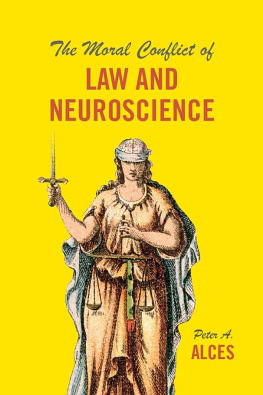
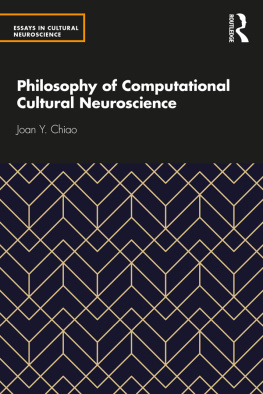
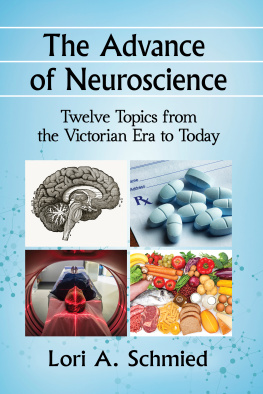
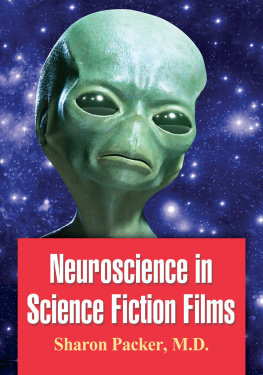
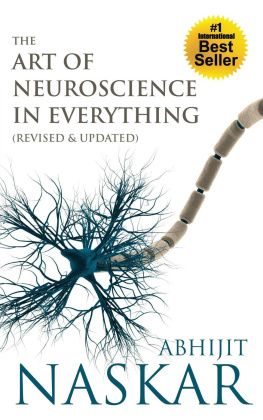

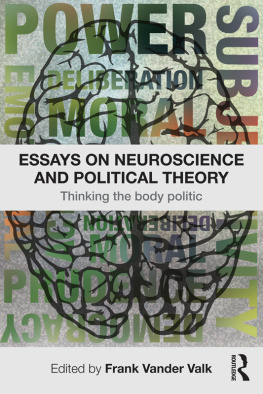
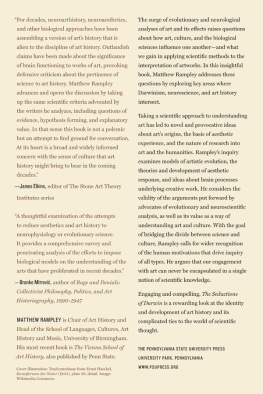
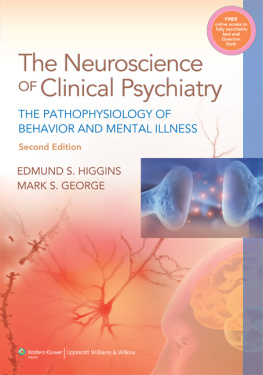
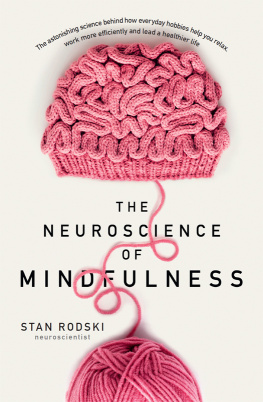
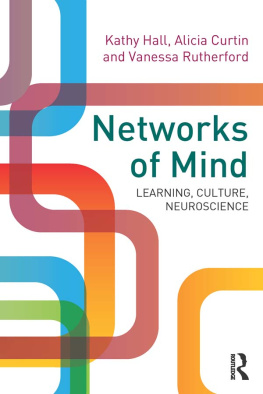
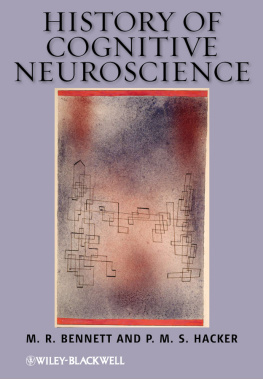
 This paper meets the requirements of ANSI / NISO Z 39.48-1992 (Permanence of Paper).
This paper meets the requirements of ANSI / NISO Z 39.48-1992 (Permanence of Paper).